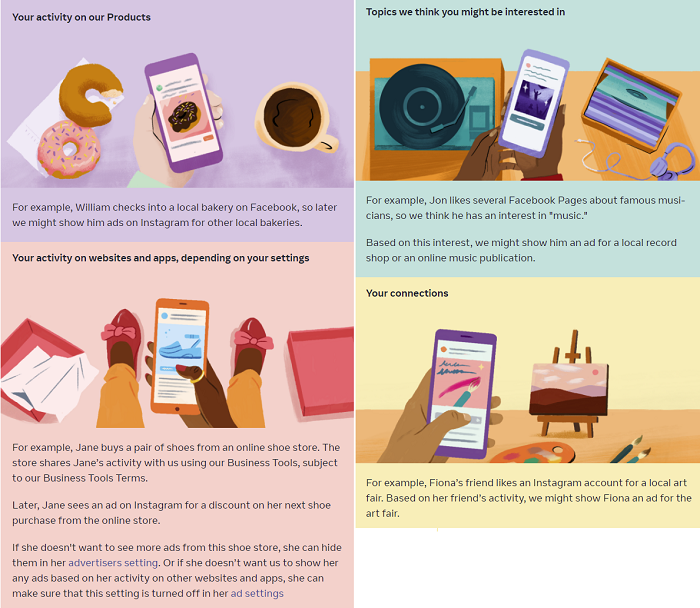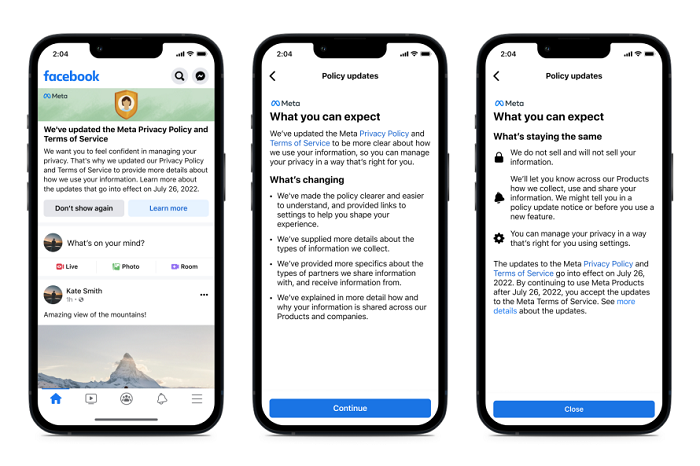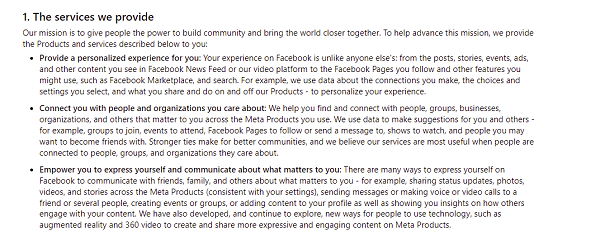Meta has today published its updated Privacy Policy – formerly known as its ‘Data Policy’ – which aims to provide more clarity around the types of information the company collects, uses and shares, in line with evolving privacy regulations around the world, and feedback from users and privacy experts.
As explained by Meta:
“Our goal with this update is to be more clear about our data practices; one way we’ve done this is through additional details and examples throughout. At Meta, we’ve always set out to build personalized experiences that provide value without compromising your privacy. So, it’s on us to have strong protections for the data we use and be transparent about how we use it.”
Which seems a bit rich, coming from the company that has inadvertently handed user data over to various third parties through flaws in its systems over and over again.
But Meta’s last major data breach was now several years back, and since the Cambridge Analytica scandal in particular, the company has implemented many new restrictions and control options to stamp out misuse.
The updated Privacy Policy, which goes into effect in July, aims to provide more transparency on this front, with clearer explanations as to how each element relates to your personal data security.

The more illustrative examples will help users contextualize the various scenarios in which their data can be used, which should help to improve understanding, and better enable people to take action if they choose.
Though in order for them to do so, they’ll need to actually tap through to the Privacy Policy and view the information presented. Which most people won’t do – but Meta is also rolling out new in-app prompts to alert people to the change.

In other words, Meta’s doing all that it can to alert people to the update, but history would suggest that, even with these prompts, only a small percentage of users will bother to check, and even fewer will update their settings as a result.
But the info is there, and it’s now presented in a way that makes it much easier to understand.
In addition to this, Meta’s also updating its Terms of Service ‘to better explain what is expected from us and those who use our platforms’.

Finally, Meta’s also rolling out new post-level default settings, making it easier to control who can view your content on Facebook.
“Now, when someone selects a default audience, that audience selection will apply to new posts created in Facebook that they share to their timeline unless they select a different audience for a particular post. Previously, your default audience for posts matched whichever audience you chose most recently. So if you had just made a post that was available to the public, your subsequent posts would be as well. This new setting will help make sure you’re sharing with the right people in your community.”
These are good updates, reflective of the evolving privacy landscape, and each will ensure that Meta’s legal team is more covered, in the case of issues, if nothing else.
And I would urge people to tap through on these new notifications to check out the updated language – because again, most people won’t, and there may be elements that get overlooked as a result.
It’s also worth noting that Meta’s updated Privacy Policy only covers Facebook, Instagram and Messenger. It does not cover WhatsApp, Workplace, Free Basics, Messenger Kids or the use of Quest devices without a Facebook account, which have their own privacy policies.
That’s an important distinction, for legal purposes, but also for general use, particularly given the rising interest in VR and the eventual metaverse shift.
You can check out Meta’s updated policy documents here.



